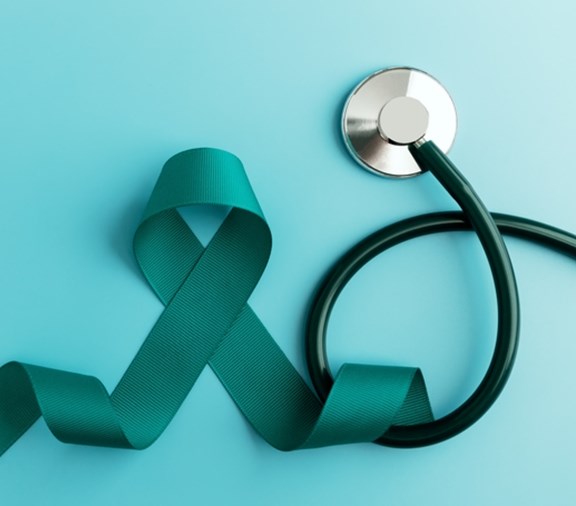
Mothers and Daughters: Here’s What You Should Know About Cervical Cancer
October 14, 2024
Cervical cancer is one of the most common cancers diagnosed in women. The symptoms can be mild. Sometimes there are no symptoms at all.
The good news is that cervical cancer is easy to prevent—especially if you start early.
Girls as young as 11 years old can get a vaccine against human papillomavirus (HPV), a virus that can lead to cervical cancer.
Keep reading to learn more about how girls and women of all ages can prevent cervical cancer.
What is the cervix?
The cervix connects the lower part of the uterus to the vagina. The cervix is shaped like a tube or tunnel.
When a woman gives birth vaginally, the baby moves from the uterus through the cervix and then through and out of the vagina.
What is cervical cancer?
When cells on the surface of the cervix grow in abnormal ways, these changes can lead to cancer. This is called cervical cancer.
What are symptoms of cervical cancer?
You can have cervical cancer for years without knowing it. When you do notice symptoms, you might think they are caused by your menstrual periods or a urinary tract infection.
Cervical cancer symptoms can include:
- unexpected bleeding from your vagina.
- bleeding after sex.
- unusual fluids or discharge from your vagina.
- pain in your pelvis.
- pain during sex.
- needing to urinate or pee more than usual.
- pain when you urinate or pee.
What causes cervical cancer?
Cervical cancer is usually caused by an infection from a virus called human papillomavirus (HPV). You can catch this virus from a partner during sex.
HPV also causes genital warts. HPV is a very common infection.
How can I prevent cervical cancer?
You can lower your chances of getting cervical cancer by:
- getting the HPV vaccine.
- using condoms during sex.
- starting at age 21, getting a regular Pap test or Pap smear, which checks for cell changes on the cervix.
- getting the HPV test (which checks for the human papillomavirus) with your Pap smear.
- not smoking.
How is cervical cancer treated?
If you catch it early, cervical cancer is very treatable.
The four main treatments are:
- radiation therapy.
- targeted therapy.
Do you have questions about the HPV vaccine or cervical cancer screening tests for yourself or your young daughters? Ask your doctor what’s best for you and your family.
Are you a woman age 15 or older who needs birth control, family planning, postpartum, or other health care services? Healthy Texas Women can help.
Managed by Texas Health and Human Services (HHSC), the Healthy Texas Women program offers these benefits to eligible women—at no cost.
Learn more about Healthy Texas Women here.



